Abdulhalim Abu Shaqqa makes men understand the real nature of Islam’s approach to gender justice
Interview with Kaleem Koya
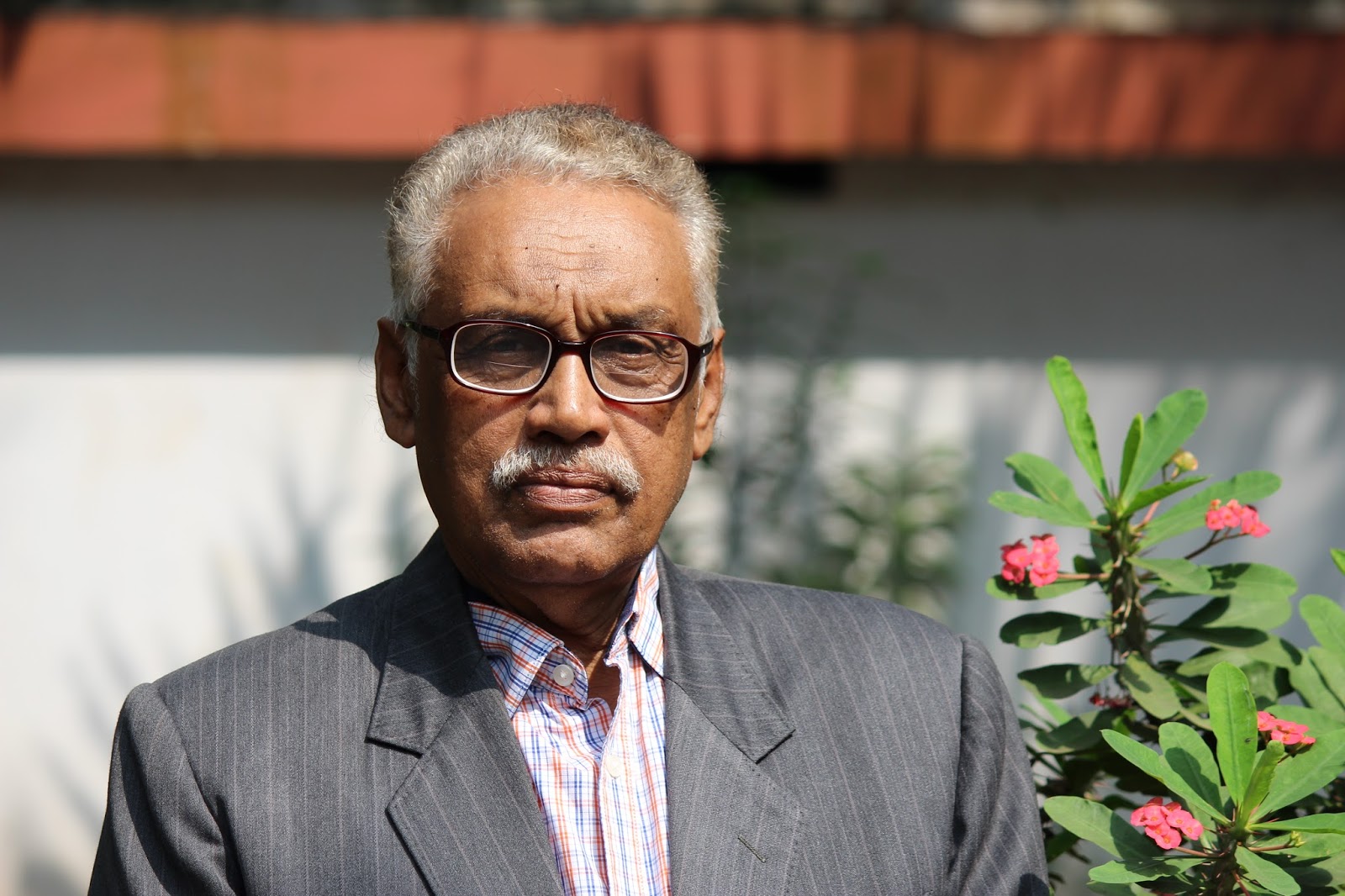
by Milena Rampoldi,
ProMosaik e.V. – In the following I would like to introduce you to a teacher,
translator, and editor from Kerala, India, Prof. Kaleem Koya. He got in touch
with me to give me a great news: the book by the Egyptian scholar of the Muslim
Brotherhood Abdulhalim Abu Shaqqa entitled “Tahrir al-mara‘ fi ‘asr
al-risala” I had partially translated into German to show how Islam promotes social and political female rights,
in which I also analysed his biography between exile and political persecution,
was published by Prof. Koya in his native language, Malayalam, the language
of the region of Kerala, India. I was so happy to hear that because ProMosaik
stands for cultural and linguistic diversity within the Muslim Ummah.
First of all, a short biography
of Prof. Koya: He was born in the suburbs of the historic city of Calicut, in
the South Indian state of Kerala, P Koya (Parappurathu stands for the
place of birth as is the custom in this part of the world, Koya is khoja).
After having taking his Masters in English language and literature from
the University of Calicut, he became lecturer in the Deparment of
Collegiate Education when he taught for more than a decade.
Simultaneously he pursued reading, writing and organizing youth and students.
He has published 6 books either
translation or original in the language of Malayalam. In his work he focusses
on Islam, and Muslims and modernity. Currently Kaleem Koya is the Managing
Editor of the newspaper Thejas Daily (Thejas means light) which is
widely distributed in Kerala and The Gulf where there are many Keralite
expatriates.
His social activities include
involvement in the activities of the Popular Front of India, a neo-social
movement with presence in more than 15 provinces in the country. He also guides
the National Confederation Human Rights Organizations (NCHRO), the largest
human rights body in India.
I asked him questions about the
importance of Abu Shaqqa, and the promotion of women’s rights according to
Islam in the Muslim communities.
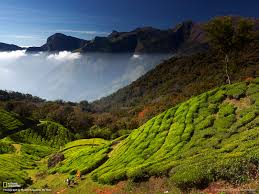 |
| Kerala landscape |
Milena Rampoldi: ProMosaik
e.V. starts from the assumption that the Ummah is unified by Islam, and
diversified by culture and language. So we think that translating Islamic books
into different languages of the Muslim world is fundamental. What do you think
about it?
Kaleem Koya: I agree with the
assumption that Islam unites the Ummah but allows local variations to under
line the perennial nature of the revealed religion. Over the history, Islam has
shown remarkable ability to absorb multiplicities adding colour and variety
to universal community. In the past we come across scholars busily
translating seminal works from languages other than Arabic and it was a
reflection of internal strength of the Ummah. It is again translations from
Arabic that helped kick start the Renaissance. The Arab World unfortunately has
fallen on lean times showing decline in terms of knowledge production.
Malayalam spoken by 23 million people of the south Indian state of Kerala has
benefited much from translations from European and Middle Eastern languages.
MR: What is the situation
of Muslims in Kerala, India? Which are the most important problems of Muslim
women there?
KK: Muslims of Kerala
enjoy a comparatively better position among the 180 million Indian Muslims
due to historical and cultural reasons. Being a coastal people they were more
open to external influence from the Gulf. Their relations with South East Asia
were also good in the past. (Vasco De Gama first landed in Malabar, the
northern region of Kerala). Until recently Muslim women enjoyed more
freedom.But due to the influence of the Gulf, orthodox ulema and salafism of
the Saudi Arabian variety they face restrictions. At the same time they are
taking up higher education in larger numbers which will help them overcome
these difficulties.
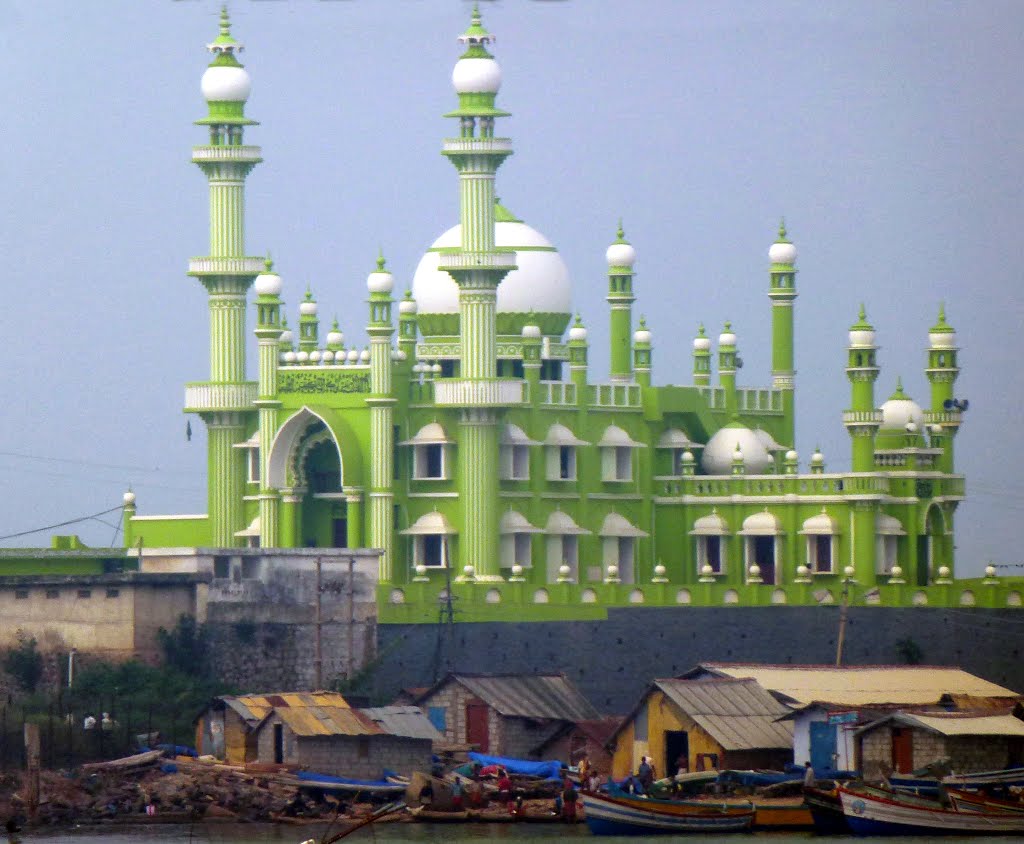
MR: Why did you decide to
translate Abu Shaqqa into Malayalam? Which are the most important things we can
learn from Abu Shaqqa to promote women in Muslim societies?
KK: We have tradition of
translating good books published in other languages. (For instance we
have Malayalam translation of Sahih Bukhari). The significance of Abu Shaqqa is
that his monumental work on the rights of women will remove many misconceptions
about the status of women in Islam spread not only by different Muslim
factions but also by the enemies of Islam. Abu Shaqqa has proved beyond any
doubt that the Prophet liberated women and latter day arguments about their
strict domesticity goes against the grain of the Prophetic teachings.
MR: I am convinced that
women has to stand with men in society and politics to develop the Muslim
countries and to fight for justice, against oppression, and for knowledge and
peace. What do you think about it?
KK: There is no argument about
it. Both men and women as Allah’s creations should shoulder the
responsibility and fight for equity and justice in the Muslim societies torn
asunder by conflict and division especially in the Middle East.
MR: How can Abu Shaqqa
help many men to understand women rights today?
KK: As I said earlier, through
the translation of Abu Shaqqa men will understand the real nature of
Islam’s approach to gender justice.
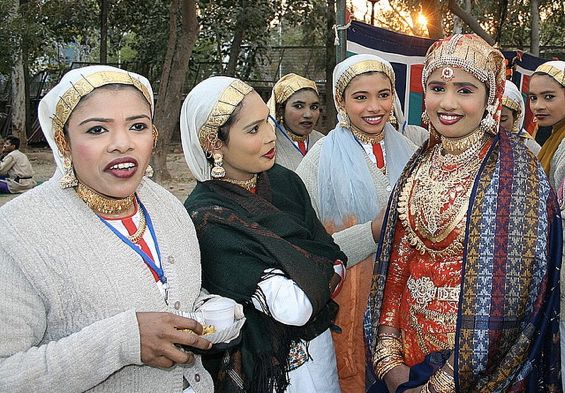 |
| A photo of a Muslim wedding in Kerala |
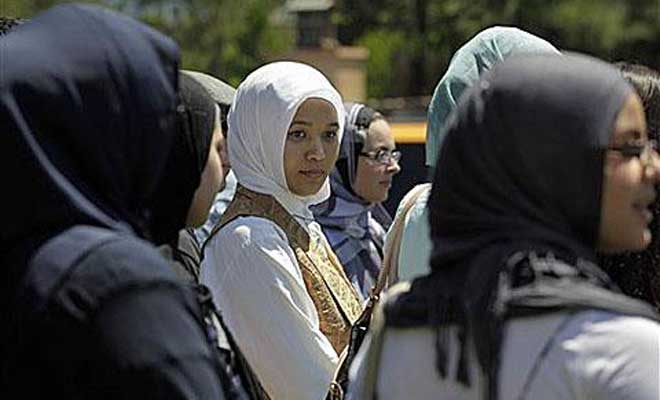 |
||
| Muslim women studying in Kerala |
Kerala’s Muslims are unique among their co-religionists in India in fashioning a system of education that enables their children to attend both religious as well as regular schools at the same time. Muslims account for around a fourth of Kerala’s population, and the state’s Muslims, known as Mapillas, are among the most literate of the various Muslim communities in the country. Madrasas and schools run by literally hundreds of Muslim religious organizations in the state have made this possible. A recent study by Zubair Hudawi, himself a madrasa graduate from Kerala and presently a doctoral candidate at the Jawaharlal Nehru University, New Delhi, titled ‘Development and Modernisation of Religious Education in Kerala: The Role of the Samastha Kerala Jameyyat ul-Ulama’, discusses this contribution in great detail (source: indianmuslims.in)


